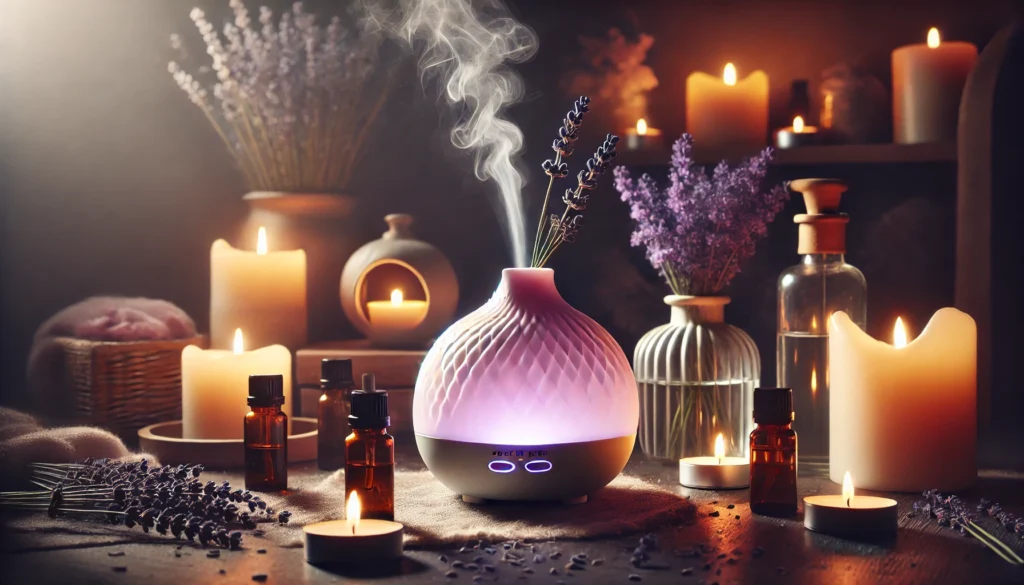Before diving into non-medication strategies, it’s crucial to understand what anxiety is. Anxiety disorders encompass a range of conditions characterized by excessive fear, worry, or nervousness. Common forms include Generalized Anxiety Disorder (GAD), Social Anxiety Disorder, and Panic Disorder. These conditions can significantly impact daily life, but there are numerous ways to manage them without medication.
You may also like: Effective Stress Management Techniques for Daily Life
Types of Anxiety Disorders
There are several types of anxiety disorders, each with unique characteristics. Generalized Anxiety Disorder involves persistent and excessive worry about various aspects of life. Social Anxiety Disorder is characterized by an intense fear of social situations, often leading to avoidance. Panic Disorder involves sudden episodes of intense fear, often accompanied by physical symptoms like heart palpitations. Understanding these distinctions is vital for tailoring effective non-medication strategies.
Symptoms and Diagnosis
Recognizing the symptoms of anxiety is the first step towards managing it. Common symptoms include restlessness, increased heart rate, difficulty concentrating, and sleep disturbances. Diagnosis typically involves a comprehensive evaluation by a mental health professional, including discussions about symptoms, medical history, and sometimes psychological testing. Early diagnosis can lead to more effective management.
Impact on Daily Life
Anxiety disorders can significantly affect various aspects of daily life, from work performance to social interactions. Individuals with anxiety may experience difficulties in maintaining relationships, meeting work deadlines, or participating in social activities. Understanding the impact of anxiety on daily life is essential for developing personalized management strategies that address specific challenges faced by individuals.
The Historical Context of Anxiety Treatments
Anxiety has been recognized as a medical condition for centuries. Ancient civilizations employed various natural remedies, such as herbal treatments and meditation, to alleviate anxiety symptoms. In traditional Chinese medicine, for example, herbs like ginseng and chamomile were commonly used for their calming effects. Similarly, Ayurvedic practices in India emphasized yoga and meditation as tools for mental balance.
Ancient Remedies and Practices
In ancient times, anxiety was often attributed to spiritual or supernatural causes. Remedies included the use of herbs, oils, and rituals to ward off negative energies. Ancient Greeks and Romans used valerian root and ashwagandha to promote relaxation. These practices laid the groundwork for modern herbal remedies used in anxiety management today.
Evolution of Anxiety Understanding
Over the centuries, the understanding of anxiety has evolved significantly. Initially viewed through a mystical lens, anxiety is now recognized as a complex interplay of biological, psychological, and environmental factors. This evolution has shifted treatment approaches from purely spiritual or physical remedies to more holistic strategies that address the mind-body connection.
Influence on Modern Treatments
The historical context of anxiety treatments has significantly influenced modern approaches. Techniques such as meditation and yoga, rooted in ancient practices, have been scientifically validated and integrated into contemporary treatment plans. Understanding this historical backdrop helps in appreciating the blend of tradition and innovation in current non-medication strategies.
Current Trends in Non-Pharmaceutical Anxiety Treatments
As awareness of mental health grows, so does interest in non-pharmaceutical approaches to treating anxiety. This shift is driven by concerns over medication side effects and a desire for holistic health solutions. Let’s explore some of the current trends that are gaining traction among those seeking anxiety relief.
Mindfulness and Meditation
Mindfulness and meditation have surged in popularity as effective tools for managing anxiety. These practices involve focusing on the present moment and cultivating an awareness of one’s thoughts and feelings without judgment. Research has shown that regular meditation can reduce anxiety symptoms by promoting relaxation and emotional regulation.
Techniques and Variations
Various techniques and variations of mindfulness and meditation exist, each offering unique benefits. Mindfulness-Based Stress Reduction (MBSR) and Mindfulness-Based Cognitive Therapy (MBCT) are structured programs that combine mindfulness practices with cognitive therapy techniques. These programs have shown significant efficacy in reducing anxiety symptoms and improving overall well-being.
Scientific Evidence and Benefits
The scientific evidence supporting mindfulness and meditation is robust. Studies indicate that these practices can lead to reduced activity in the amygdala, the brain’s fear center, leading to decreased anxiety. Regular mindfulness practice enhances self-awareness, emotional regulation, and cognitive flexibility, providing a powerful tool for anxiety management.
Integration into Daily Life
Integrating mindfulness and meditation into daily life can be simple and flexible. Starting with short, guided meditation sessions can help individuals gradually build a consistent practice. Incorporating mindfulness into routine activities, such as mindful eating or mindful walking, allows individuals to practice mindfulness throughout the day, enhancing its benefits.
Cognitive Behavioral Therapy (CBT)
CBT is a structured, goal-oriented therapy that helps individuals identify and change negative thought patterns. It is widely recognized as a highly effective treatment for anxiety disorders without medication. Through CBT, individuals learn coping strategies and problem-solving skills that can significantly reduce anxiety symptoms.

Techniques and Approaches
CBT involves various techniques, including cognitive restructuring, exposure therapy, and skills training. Cognitive restructuring helps individuals challenge and modify negative thoughts, while exposure therapy gradually desensitizes them to anxiety-provoking stimuli. Skills training equips individuals with practical tools for managing stress and anxiety in everyday situations.
Success Rates and Research
Research consistently demonstrates the success of CBT in treating anxiety disorders. Studies show that CBT can lead to significant reductions in anxiety symptoms, with effects often lasting long after the therapy concludes. The structured, collaborative nature of CBT makes it a preferred choice for many seeking non-medication anxiety relief.
Accessibility and Availability
CBT is widely accessible and available through various formats, including individual sessions, group therapy, and online platforms. This accessibility allows individuals to choose a format that best suits their needs and preferences. Online CBT programs offer flexibility and convenience, making therapy more accessible to those with busy schedules or limited access to in-person services.
Physical Exercise
Regular physical activity is a powerful non-pharmaceutical anxiety treatment. Exercise releases endorphins, which are natural mood lifters, and can help reduce stress and improve sleep. Activities like yoga, running, and swimming are particularly beneficial for anxiety relief.
Types of Exercise Beneficial for Anxiety
Different types of exercise offer unique benefits for anxiety management. Aerobic exercises, such as running and cycling, increase heart rate and release endorphins, promoting a sense of well-being. Yoga and tai chi combine physical movement with mindfulness, enhancing relaxation and stress reduction. Strength training also contributes to anxiety relief by boosting self-esteem and resilience.
Physiological and Psychological Benefits
Exercise provides both physiological and psychological benefits for anxiety management. Physiologically, exercise reduces levels of stress hormones like cortisol and increases endorphins, improving mood. Psychologically, exercise enhances self-efficacy, distracts from negative thoughts, and improves sleep quality, all contributing to reduced anxiety levels.
Incorporating Exercise into a Routine
Incorporating exercise into a daily routine can be achievable with small, manageable steps. Starting with short, enjoyable activities encourages consistency and motivation. Setting realistic goals, finding a workout buddy, or participating in group classes can provide accountability and social support, enhancing the likelihood of maintaining an exercise routine.
Future Implications: The Role of Technology in Anxiety Management
The future of anxiety management is likely to be influenced by technological advancements. Wearable devices and mobile apps designed to monitor stress levels and promote relaxation are becoming more sophisticated. These tools offer real-time data and personalized recommendations, empowering individuals to take control of their anxiety in innovative ways.
Wearable Technology
Wearable technology, such as smartwatches and fitness trackers, plays a pivotal role in anxiety management. These devices monitor physiological indicators like heart rate and stress levels, providing insights into an individual’s emotional state. Real-time feedback enables users to identify stressors and implement coping strategies promptly, enhancing self-regulation and anxiety management.
Mobile Applications
Mobile applications offer a wide range of features for anxiety management, from guided meditations to cognitive-behavioral exercises. Apps like Headspace and Calm provide easy access to mindfulness and relaxation techniques, while others offer tools for tracking mood and identifying triggers. These apps empower individuals to practice anxiety management techniques anytime, anywhere.
Virtual Reality and AI
Emerging technologies like virtual reality (VR) and artificial intelligence (AI) hold promise for future anxiety management. VR can simulate anxiety-provoking situations in a controlled environment, facilitating exposure therapy. AI-driven chatbots offer immediate support and guidance, providing personalized anxiety management strategies based on user input. These innovations may revolutionize how individuals approach anxiety relief in the coming years.
Practical Advice for Implementing Non-Medication Strategies
Establishing a Routine
Creating a daily routine that incorporates mindfulness, exercise, and healthy sleep habits can significantly reduce anxiety. Consistency is key, as regular practice of these strategies leads to better long-term outcomes.
Developing a Mindful Routine
Developing a mindful routine involves integrating mindfulness practices into everyday activities. Setting aside dedicated time for meditation or mindful breathing can establish a foundation for mindfulness. Incorporating mindfulness into daily tasks, such as mindful eating or mindful commuting, reinforces the practice throughout the day, promoting overall well-being.
Balancing Exercise and Rest
Balancing exercise and rest is crucial for maintaining physical and mental health. Creating a balanced routine involves scheduling regular exercise sessions and prioritizing sufficient rest and recovery. Listening to the body’s signals and adjusting exercise intensity and duration accordingly helps prevent burnout and supports sustained anxiety management.
Prioritizing Sleep and Relaxation
Prioritizing sleep and relaxation is essential for effective anxiety management. Establishing a consistent sleep schedule, creating a relaxing bedtime routine, and optimizing the sleep environment can improve sleep quality. Incorporating relaxation techniques, such as progressive muscle relaxation or guided imagery, enhances relaxation and reduces anxiety.
Nutrition and Supplements
A balanced diet can play a critical role in managing anxiety. Consuming foods rich in omega-3 fatty acids, magnesium, and zinc can support brain health and reduce anxiety symptoms. Additionally, certain supplements, such as valerian root and L-theanine, have been shown to promote relaxation and improve mood.

Dietary Choices for Anxiety Management
Dietary choices significantly influence anxiety management. Consuming nutrient-dense foods, such as fruits, vegetables, whole grains, and lean proteins, supports overall health and emotional well-being. Limiting caffeine and sugar intake helps stabilize mood and reduce anxiety symptoms. A balanced diet provides essential nutrients for optimal brain function and emotional resilience.
Understanding the Role of Supplements
Supplements can complement dietary choices in anxiety management. Omega-3 fatty acids, found in fish oil, support brain health and reduce inflammation. Magnesium and zinc play roles in neurotransmitter regulation and stress response. Herbal supplements like valerian root and L-theanine promote relaxation and reduce anxiety without the side effects associated with pharmaceuticals.
Consulting with Healthcare Professionals
Consulting with healthcare professionals is essential when considering dietary changes or supplements for anxiety management. Healthcare providers can offer personalized recommendations based on individual needs and health conditions. They can also ensure that supplements do not interact with other medications or treatments, promoting safe and effective anxiety management.
Social Support and Community Engagement
Building a strong support network is essential for anxiety management. Engaging with friends, family, or support groups can provide emotional support and reduce feelings of isolation. Community involvement also offers a sense of purpose and belonging, which can alleviate anxiety.
Building a Supportive Network
Building a supportive network involves cultivating relationships with individuals who provide encouragement and understanding. Connecting with trusted friends, family members, or support groups creates a foundation of emotional support. Sharing experiences and challenges with others who understand fosters a sense of connection and reduces feelings of isolation.
Engaging in Community Activities
Engaging in community activities provides opportunities for social interaction and personal growth. Participating in volunteer work, clubs, or group activities fosters a sense of belonging and purpose. Community involvement enhances self-esteem and provides a positive outlet for anxiety, promoting overall well-being.
Seeking Professional Support
Seeking professional support, such as therapy or counseling, can enhance anxiety management. Mental health professionals offer guidance, coping strategies, and a safe space for exploring emotions and challenges. Professional support complements personal and community resources, providing a comprehensive approach to anxiety relief.
Real-World Success Stories
Several individuals have successfully managed their anxiety using non-medication strategies. For instance, Emma, a 32-year-old teacher, struggled with social anxiety for years. By incorporating regular yoga practice, mindfulness meditation, and CBT into her routine, she was able to significantly reduce her anxiety levels and improve her quality of life.
Emma’s Journey to Anxiety Relief
Emma’s journey to anxiety relief began with a commitment to self-care and personal growth. She explored various non-medication strategies, such as yoga and mindfulness, to address her social anxiety. Through consistent practice and dedication, Emma experienced significant improvements in her anxiety levels and overall well-being.
John’s Experience with Exercise and Nutrition
John, a 45-year-old engineer, managed his anxiety through exercise and nutrition. By incorporating regular aerobic exercise and adopting a balanced diet rich in omega-3 fatty acids, John noticed a marked reduction in his anxiety symptoms. His commitment to a healthy lifestyle contributed to improved mood and resilience.
Sarah’s Success with Technology and Support
Sarah, a 28-year-old graphic designer, utilized technology and social support for anxiety management. She used mobile apps for guided meditation and stress monitoring, while also engaging in online support groups. These tools and connections provided Sarah with practical strategies and a sense of community, enhancing her anxiety management efforts.
Conclusion: A Holistic Approach to Anxiety Relief
In conclusion, while medication is an effective treatment for many, non-medication strategies offer a viable alternative for those seeking holistic approaches to anxiety relief. By understanding the historical context, current trends, and future implications of these strategies, individuals can make informed choices about their mental health. Combining mindfulness, exercise, therapy, and social support provides a comprehensive framework for managing anxiety and enhancing overall well-being.
Embracing a Holistic Lifestyle
Embracing a holistic lifestyle involves integrating various non-medication strategies into daily life. By prioritizing self-care, individuals can create a balanced routine that supports physical, emotional, and mental health. This holistic approach fosters resilience and equips individuals with the tools needed to navigate anxiety challenges effectively.
Commitment and Consistency
Commitment and consistency are crucial for successful anxiety management. Regular practice of mindfulness, exercise, and other strategies leads to better long-term outcomes. By setting realistic goals and maintaining motivation, individuals can sustain their anxiety management efforts and experience lasting benefits.

Achieving Balance and Fulfillment
Achieving balance and fulfillment involves understanding personal needs and preferences in anxiety management. By exploring different strategies and adapting them to fit individual lifestyles, individuals can create a personalized approach to anxiety relief. This adaptability promotes a fulfilling and balanced life, free from the constraints of anxiety.
Further Reading:
Nonpharmacological treatments for anxiety disorders
9 Natural Remedies for Calming Anxiety Without Medication
Important Note: The information contained in this article is for general informational purposes only, and should not be construed as health or medical advice, nor is it intended to diagnose, prevent, treat, or cure any disease or health condition. Before embarking on any diet, fitness regimen, or program of nutritional supplementation, it is advisable to consult your healthcare professional in order to determine its safety and probable efficacy in terms of your individual state of health.
Regarding Nutritional Supplements Or Other Non-Prescription Health Products: If any nutritional supplements or other non-prescription health products are mentioned in the foregoing article, any claims or statements made about them have not been evaluated by the U.S. Food and Drug Administration, and such nutritional supplements or other health products are not intended to diagnose, treat, cure, or prevent any disease.


